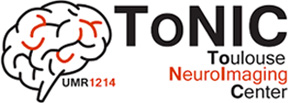Recherche translationnelle en santé,
technologie pour la santé et recherche clinique

DETERMIND (in the making) / Presentation
Page en cours de construction
Determinants, Models, Indicators, Neurosciences, therapeutics Decision
Team leader : Lola DANET (MCF)
Advances in clinical neuroscience and precision medicine are converging towards the need to take into account interindividual variability in the study of the evolution and treatment of neurological and psychiatric diseases, calling for a paradigm shift (Hampel et al., 2023). In the field of acquired brain injury, for example, cognitive or motor recovery and response to treatment can vary even when the anatomical site, nature and extent of the lesion, patient age, and general health status are taken into account (Cortes & Pera, 2021). In patients with Parkinson’s disease at the stage of motor fluctuations, we have shown that different dimensions of personality can influence the therapeutic response to different types of treatments, and in particular the improvement in quality of life (PSYCHO-STIM (Boussac et al., 2022) and PSYCHO-PERF (Boussac et al., 2024) studies). This theme is found in studies aimed at evaluating the effect of neurodevelopment on neurodegenerative diseases with cognitive expression.
Our team showed that the presence of neurodevelopmental vulnerability in patients with Alzheimer’s disease (AD) or frontotemporal dementia (FTD) was associated with an anticipation of the appearance of symptoms of their disease by approximately 8 years compared to a group of patients without developmental vulnerability (Siguier et al., 2025).
